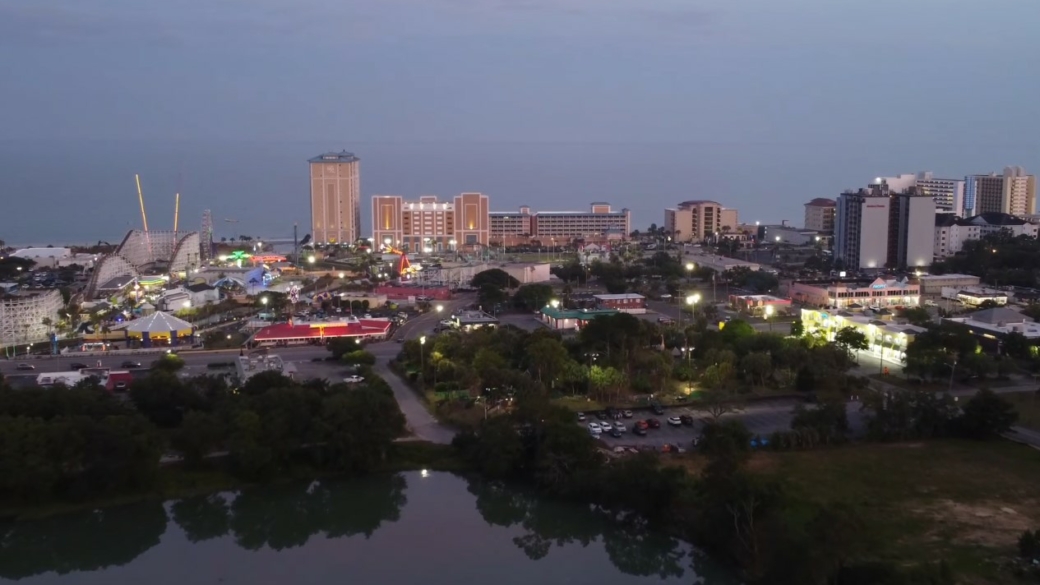Why is Myrtle Beach So Dangerous?
Myrtle Beach, a renowned coastal city in South Carolina, brings a set of challenges and dangers that any prospective homeowner or tenant must take into account. While its beautiful sandy beaches and ocean views are attractive, it’s essential to carefully examine the underlying risks that come with this location. This article outlines the 10 reasons why Myrtle Beach is so dangerous.
10. Crime Rates
Safe housing is prioritized when buying or investing. Regrettably, Myrtle Beach exhibits an extremely high crime rate, which is a significant cause for concern. Various types of criminal activities, including burglary, theft, and even violent crimes, have been reported in higher numbers compared to other cities. For families looking to establish a home or individuals seeking a peaceful residence, this issue alone could be a deterrent.
Prospective homeowners and renters should carefully examine local crime statistics and neighborhood trends to ensure they are not inadvertently moving into an area with a high level of criminal activity.
Although, it should be noted that crime rates have decreased over the last 10 years. It’s clear the city are putting in the work to improve this. This being said, there is still so much more crime committed here compared to other US cities.
9. Hurricane and Tropical Storms
Myrtle Beach’s geographical location places it at risk of hurricanes and tropical storms, introducing a natural threat to its residents. Investing in a home here implies dealing with the unpredictability of severe weather conditions, including strong winds and heavy rainfall, all of which can result in significant property damage. Homeowners must be prepared for potential evacuations, property repairs, and the subsequent costs of recovery.
This can also impact insurance expenses, making it a notable financial consideration. Before purchasing or renting, it’s crucial to ensure that the property is well-prepared to withstand such natural adversities and that effective community measures are in place for disaster response and recovery.
8. Flash Floods
Flash floods are another natural disaster risk to consider when buying a home in Myrtle Beach. Due to its low-lying areas and proximity to water bodies, certain parts of Myrtle Beach are prone to sudden and extreme flooding. This not only causes immediate damage but also contributes to longer-term issues like mold and structural damage.
If considering purchasing real estate in Myrtle Beach, investigate whether the area is prone to flooding and what preventive measures, such as proper drainage systems, have been implemented. Residents must also consider the accessibility of essential services and routes to avoid being stranded or without support. This factor stresses the importance of emergency preparedness and a well-considered geographical and infrastructural decision.
7. Tourism Overload
Myrtle Beach attracts many tourists, especially during peak seasons. This substantial tourist influx brings a host of challenges, including straining local resources and amenities. For residents, this could mean crowded beaches, heavier traffic, and stretched emergency services. It’s crucial to consider how these seasonal population surges might impact your quality of life and your access to essential facilities and services. Tourists can disrupt the peaceful atmosphere, making it less suitable for those seeking a consistent peaceful living environment.
6. Pests and Wildlife
Myrtle Beach’s tropical climate attracts insects and rodents, which can be a problem for homeowners and renters. Additionally, the city’s proximity to natural habitats heightens the chances of wildlife encounters. These factors can result in inconveniences, health considerations, and potential harm to properties. Thus, it’s imperative for residents to consider pest management strategies and be prepared for potential wildlife interactions when contemplating living in Myrtle Beach.
When choosing a home, it is important to research its pest history and preventive measures.
5. Inconsistent Rental Income
Investors considering Myrtle Beach for rental income need to be aware of the seasonality factor, which may result in fluctuating rental incomes. Off-peak rental income may drop significantly due to reduced tourist activity, but peak seasons can boost revenue. Recognizing and preparing for these financial ups and downs is crucial for investors to maintain steady property management and upkeep while avoiding potential financial challenges.
4. High Insurance Costs
Myrtle Beach’s vulnerability to different natural disasters like hurricanes, floods, and storms frequently results in increased insurance premiums for properties in the region. In order to protect their investments from various damages, homeowners must purchase comprehensive insurance.
The significant insurance expenses contribute to the financial aspects that prospective buyers or investors need to consider when buying or investing in real estate in Myrtle Beach. To understand the total investment and ongoing costs of property ownership in this area, thorough research and consideration of these costs are necessary.
3. Property Maintenance Challenges
Due to its coastal location and climate, Myrtle Beach properties require more maintenance. The salty air, combined with humidity, presents an ongoing challenge to the condition of buildings, potentially accelerating wear and tear and material deterioration. As a result, homeowners must dedicate themselves to continuous maintenance to preserve the integrity and appearance of their properties.
Prospective buyers or renters should be prepared to spend more to maintain a property in such environmental conditions to keep it in good condition and value.
2. Traffic and Transportation Issues
During tourist season, Myrtle Beach is prone to traffic congestion. Residents may face extended travel times, road closures, or limited parking, which can significantly increase the frustration of daily commutes and simple errands.
These traffic-related challenges can influence the overall quality of life and convenience for those living in Myrtle Beach, underscoring the need for potential homeowners and renters to carefully consider how these factors may impact their daily routines and lifestyle.
1. Limited Employment Opportunities
Myrtle Beach is known as a tourist destination, but its tourism and service industries limit the availability of stable, well-paying jobs, especially for those interested in technology, manufacturing, or corporate careers. The scarcity of diverse job options may require residents to commute to neighboring cities for work, adding complexity to their daily logistics and potentially reducing the attractiveness of living in Myrtle Beach.
Conclusion
Myrtle Beach’s beautiful coastline and great tourist attractions are appealing, but residents must consider its drawbacks. From elevated crime rates and susceptibility to natural disasters to limited employment opportunities, each element plays a pivotal role in assessing Myrtle Beach as a suitable place for residence or investment. It necessitates a thorough examination that goes beyond the surface allure, ensuring that the choice to live or invest here aligns with one’s expectations, lifestyle, and capacity to deal with the associated risks and challenges.
Gaining a comprehensive understanding of these factors empowers individuals to make informed decisions that account for both the benefits and potential drawbacks of making Myrtle Beach their home.


